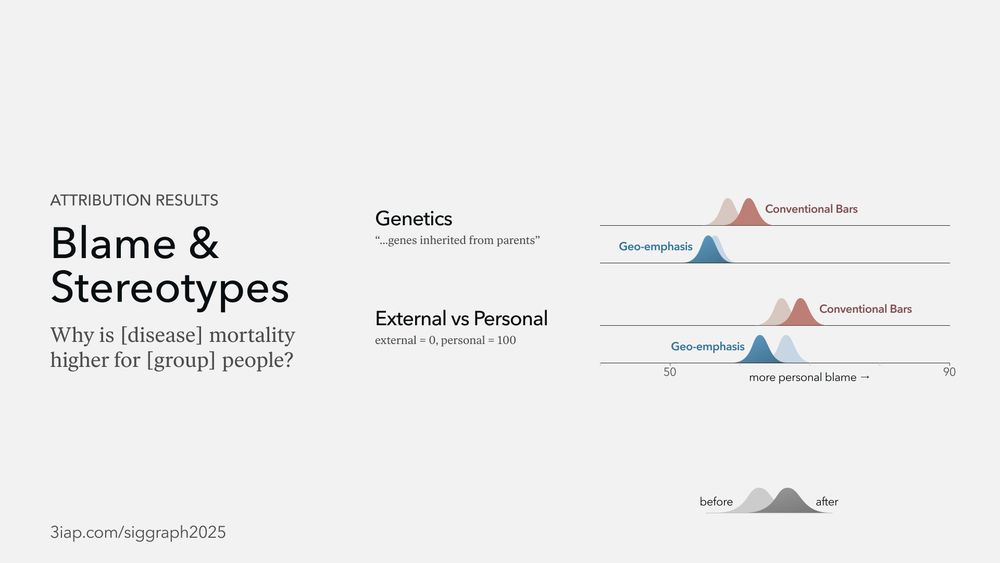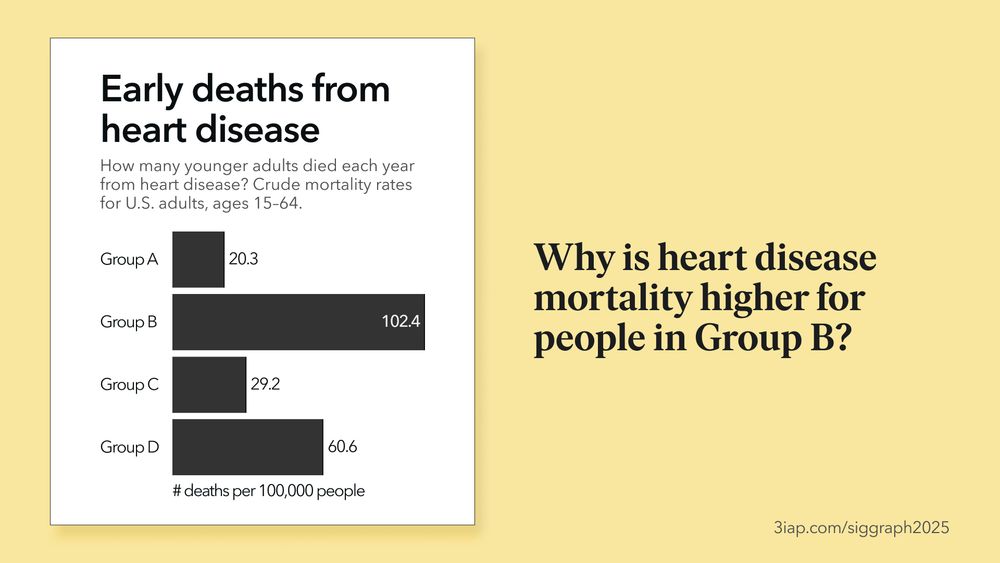
Eli Holder
@elibryan.bsky.social
2.6K followers
4.5K following
310 posts
Raleigh. How might we visualize people, fairly and equitably? Data / dataviz / design / psychology / research geek. He / him. Chaotic good. Follows Fizzlethorpe Bristlebane. Design / research / writing at https://3iap.com.
Posts
Media
Videos
Starter Packs
Pinned
Reposted by Eli Holder
Reposted by Eli Holder
Reposted by Eli Holder
Reposted by Eli Holder
Reposted by Eli Holder
Reposted by Eli Holder
Reposted by Eli Holder
Reposted by Eli Holder
Ana Marie Cox
@anamariecox.bsky.social
· Sep 18
Eli Holder
@elibryan.bsky.social
· Sep 15
Eli Holder
@elibryan.bsky.social
· Sep 9
Eli Holder
@elibryan.bsky.social
· Sep 9
There was lots of data to play with for #TidyTuesday this week where we're looking at the power of different passports! ✈️
I decided to try out the idea of using small multiples and highlighting to untangle a spaghetti chart with lots of lines 📊
#RStats #DataViz #ggplot2
I decided to try out the idea of using small multiples and highlighting to untangle a spaghetti chart with lots of lines 📊
#RStats #DataViz #ggplot2

Eli Holder
@elibryan.bsky.social
· Sep 9
I just had to check it for myself: the NYT truly only compressed Mamdani to fit into the mobile version, and none of the others. 📊 #dataviz
No matter the technical explanation, the could and should have been avoided.
No matter the technical explanation, the could and should have been avoided.
Reposted by Eli Holder
Eli Holder
@elibryan.bsky.social
· Sep 4
Reposted by Eli Holder
Eli Holder
@elibryan.bsky.social
· Aug 25











































